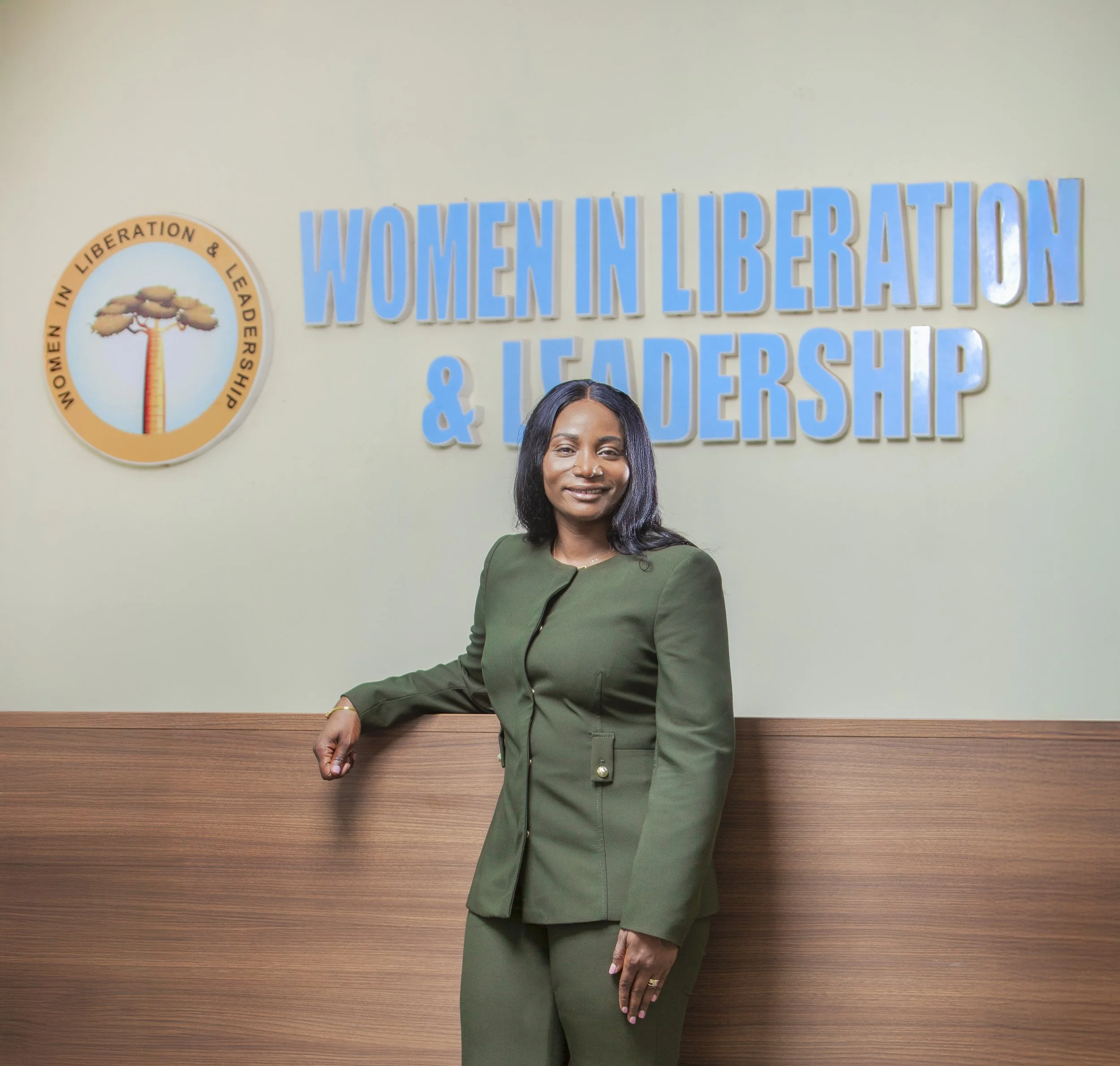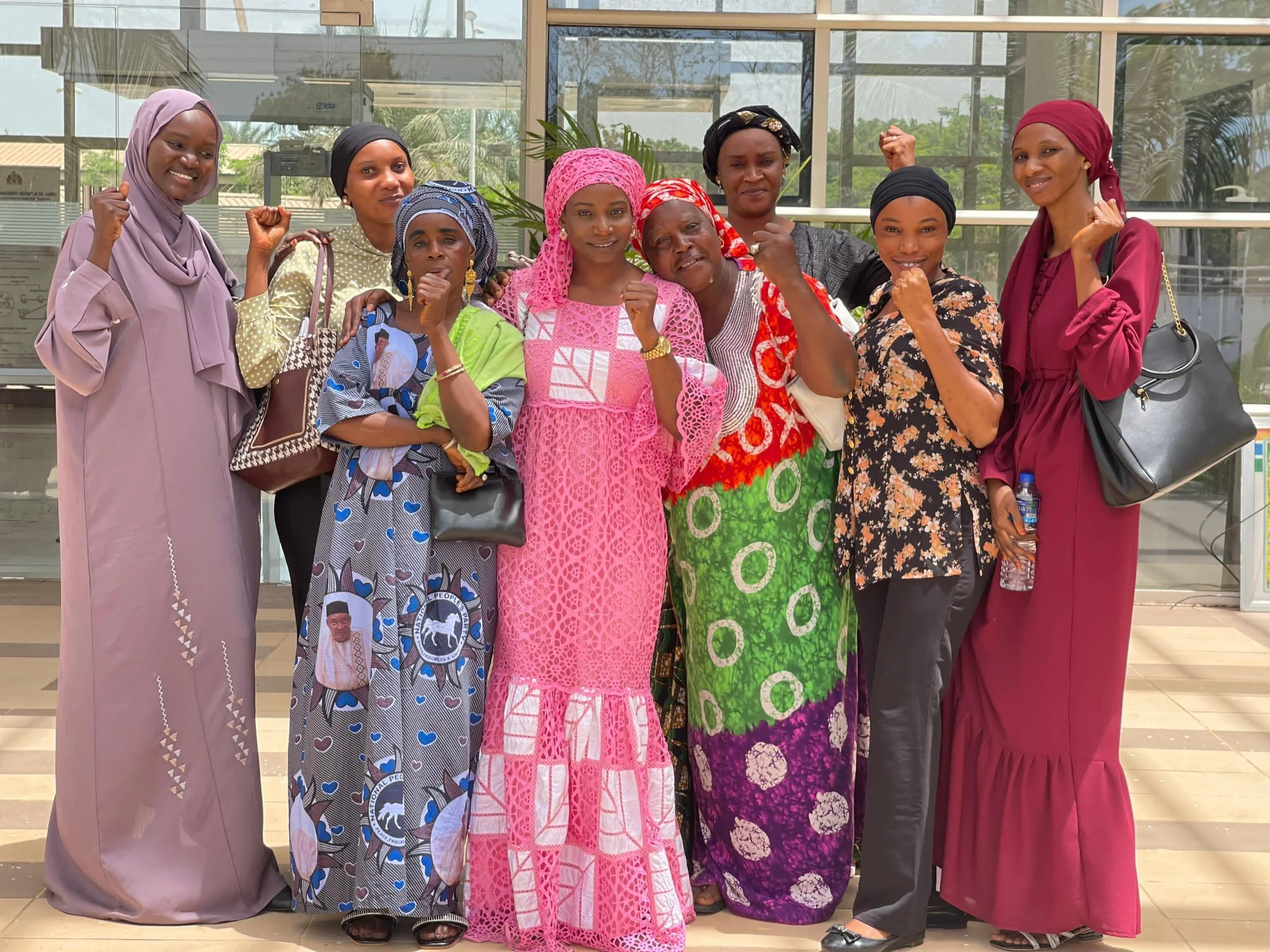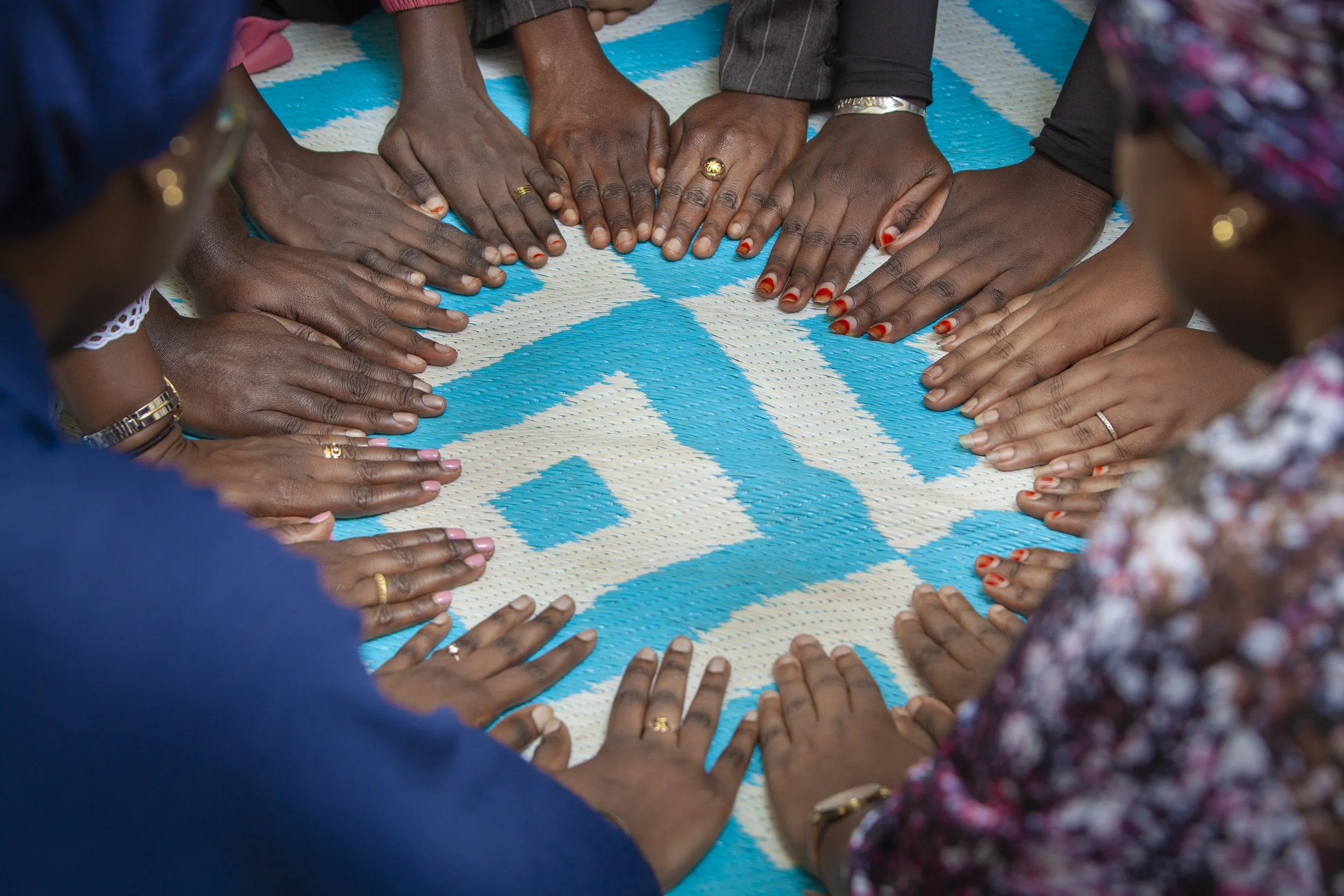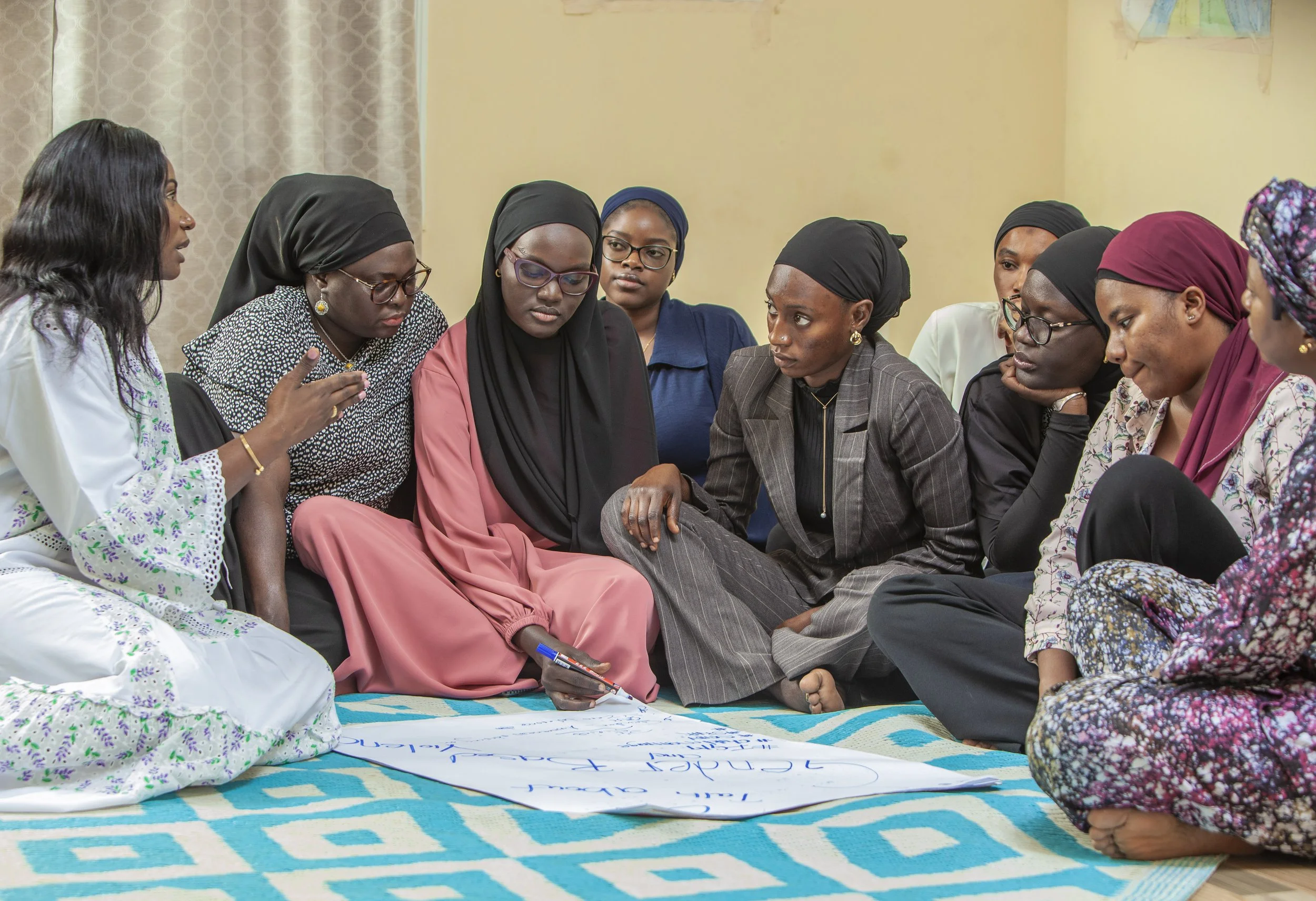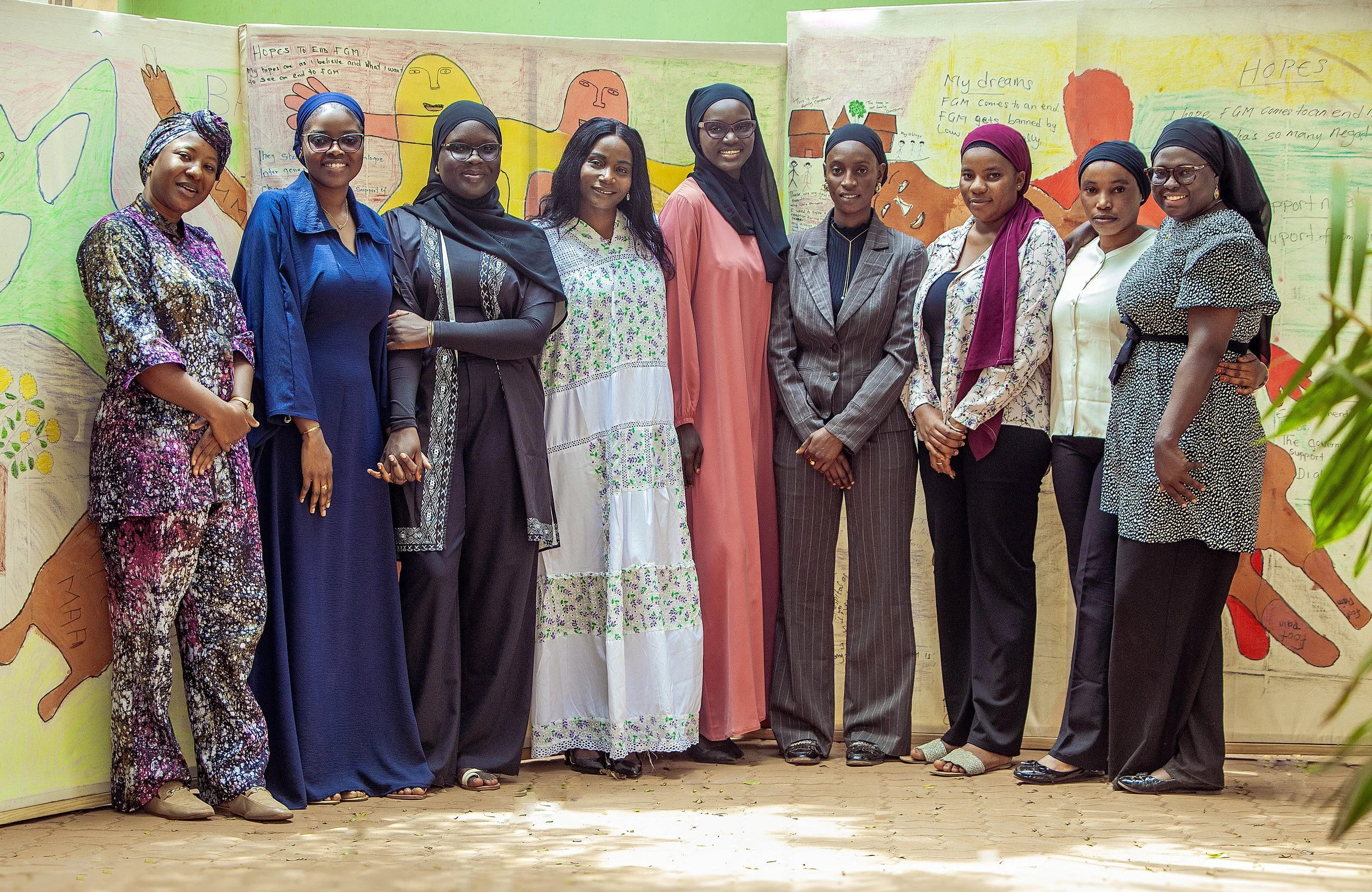Achieving Gender Justice in The Gambia
June 2025
Since its inception in 2018, Women in Liberation and Leadership (WILL) has emerged as a formidable organisation, both within The Gambia and globally. From the red carpet in LA, to grassroots work across the country, these are just some of the highlights from the past seven years…
Founder of WILL, Dr (h.c.) Fatou Baldeh MBE
Global recognition
Between 2024-5, Founder & CEO of WILL, Dr (h.c.) Fatou Baldeh MBE, received multiple prestigious global accolades.
In 2024, she accepted the U.S. State Department's International Women of Courage Award and the Geneva Summit Women's Rights Award, celebrating her leadership in defending human dignity.
Later that year, Fatou’s alma mater, The University of Wolverhampton, presented her with an honorary doctorate.
In early 2025, TIME named her one of their Women of the Year, and former U.S. President Barack Obama publicly recognised her efforts to end FGM on International Women’s Day. To mark the same occasion, Harvard University listed her as one of the 25 Extraordinary Women in the World, alongside leaders like Iceland's President and philanthropist Melinda French Gates. Former US First Lady Michelle Obama also supported Fatou on her Facebook page.
TIME then named her to the 2025 TIME100, its annual list of the 100 most influential people in the world. She was included in the “icons” category.
Despite the dizzying heights of these honours, Fatou remains firmly rooted in her mission:
“I have been deeply humbled by all of these recognitions. It has been overwhelming at times, and honestly hard to believe. Thank you to all of the individuals and organisations for their acknowledgments. But for me, the most important outcome of moments like these is having a global platform to continue the fight for women’s liberation and leadership. I am dedicating every single one of these awards to my Gambian sisters, who are the real icons here.”
Victory in maintaining the ban on FGM in The Gambia
In 2024, WILL was at the helm of civil society efforts to lobby National Assembly members to reject a proposed repeal on the ban against Female Genital Mutilation (FGM).
The Women's (Amendment) Bill 2024, introduced as a private member's bill, sought to repeal the Women's (Amendment) Act 2015, which criminalises FGM. WILL led the movement against this proposed rollback on women’s rights, highlighting that FGM is a severe human rights violation that results in serious health consequences for survivors, and sometimes, tragically, in the death of victims. A report that WILL wrote on the impacts of FGM served as crucial evidence in this fight.
On July 15th, 2024, the National Assembly rejected the proposed bill. This was a huge victory for all women and girls - not just in The Gambia - but around the world. If it had been successful, this bill would have made The Gambia infamous as the first country to reverse protections against FGM.
Fatou explains:
“For a year and a half, that was my complete focus. Before that, I didn't know anyone at the National Assembly. Within a few weeks, I was going in and knocking on every MP's door to see them. I supported the coordination of civil society organisations’ efforts - because for us to maintain that ban, we needed collective effort. And I always say this - anything I have achieved - I didn't do it alone. I could not have done it alone.”
Fatou with members of WILL and anti-FGM activists, following the National Assembly’s decision
While campaigning against FGM is one of WILL’s core activities, the organisation has also been deeply involved in Gambia’s transitional justice process.
Listening Circles for survivors of Sexual and Gender-Based Violence
As The Gambia continues its democratic transition and acknowledges the brutalities of former President Jammeh’s 22-year-dictatorship, WILL has proven to be a pivotal partner in the nation’s journey towards healing and reconciliation.
The organisation has supported the work of the Truth, Reconciliation & Reparations Commission (TRRC), and now the Post-TRRC process. The TRRC was a public platform where people could come and offer their testimonies on the atrocities that occurred during the dictatorship. The former regime was characterised by widespread human rights violations, including Sexual and Gender-Based Violence (SGBV).
WILL pioneered “Listening Circles” as a crucial community intervention in The Gambia’s truth-telling exercise.
Fatou and her team created safe spaces where women felt comfortable sharing their stories without fear of stigma, shame, victim-blaming, retaliation, and societal attitudes that privilege men over women.
The Listening Circles were held in locations that women identified as safe and private, with a small number of people in attendance. Every session was given the consent of the communities. Through these non-formal methods, WILL registered a landmark breakthrough by gaining access to communities in the rural area of Foni, where members were either hesitant or unable to access the official TRRC channels.
Participants commented that the Listening Circles weren’t only about documenting Jammeh-era crimes: they also provided an emotional outlet for victims, an environment to bond with each other, and allowed time to reflect and heal. One woman observed:
“It was very participatory, and they helped us forge bonds within the victim communities, which has been a great connection to have. It was a very enjoyable yet educational process. We were able to learn so much, not just about transitional justice but also about a range of other things like SGBV, laws and legislation, and about empowering communities. Through these circles, we have made strong and lasting bonds, and we have learned a great deal and even today we continue to use these support networks.”
Working to reverse an increase in reported Sexual and Gender-Based Violence
Fatou reflects on The Gambia’s transitional justice process:
“Years later, we still see that the prevalence of sexual and gender-based violence is actually escalating post-Jammeh era. And what this is showing us is that it is embedded within our society, within our social norms, and we cannot address transitional justice without looking at gender. We need to look at the root causes of violence…What is it in our society that makes it acceptable for certain forms of violations to happen to women?”
She is deeply committed to educating communities about the drivers of Sexual and Gender-Based Violence. She notes that while there may be an increase in the reporting of SGBV cases due to Gambia’s democratic transition and the growth of social media usage in the country, for her, SGBV has become endemic and normalised in many communities, and she is passionate about turning this around.
“We want to open the space for us as Gambians to acknowledge the injustice that is going on from our homes - how we treat our daughters and our sons differently, and how in turn, because from that moment you are raising the boy, this is what you can do, and the girl, this is what you can do. We are trying to challenge that status quo from the household level to the policy level.”
In order to work towards this goal, in 2024 alone, WILL engaged with multiple projects including:
Holding Safe Spaces with over 100 women who are survivors of SGBV. In one of these sessions, women took part in a creative activity called “body mapping”, where they lie on a large piece of paper and are drawn around, and then illustrate their body with their own story and feelings about FGM.
Organising community dialogues on issues including FGM, sexual and reproductive health and rights (SRHR) and positive masculinity across The Gambia, in Upper River Region, Lower River Region and the West Coast Region, reaching over 700 participants. These included specific sessions with community leaders, older community members, adolescents, women, men and boys.
Facilitating a training programme for members of the Gambia Police Force and the National Agency for Legal Aid (NALA) on improving the investigation and prosecution of SGBV crimes, as well as improving support for SGBV victims.
What’s next?
Fatou concludes:
“One day when I am no longer referred to as an activist, I am still not sure where I'm heading. So much has happened over the last year that I wasn't planning or prepared for. As I always say, I didn't start this work for any recognition. I wanted to build an organisation that represents women. That was the plan. And I think WILL is in a position now where we are recognised as one of the leading women-led organisations here.”
Fatou is determined that WILL continues to have a legacy beyond her tenure as CEO. While she is not stepping down anytime soon, she has nurtured a team of brilliant young women who will pick up the mantle in future. Just like their boss, they show up every day to transform and protect the lives and rights of women and girls in The Gambia.
Fatou and the WILL team

